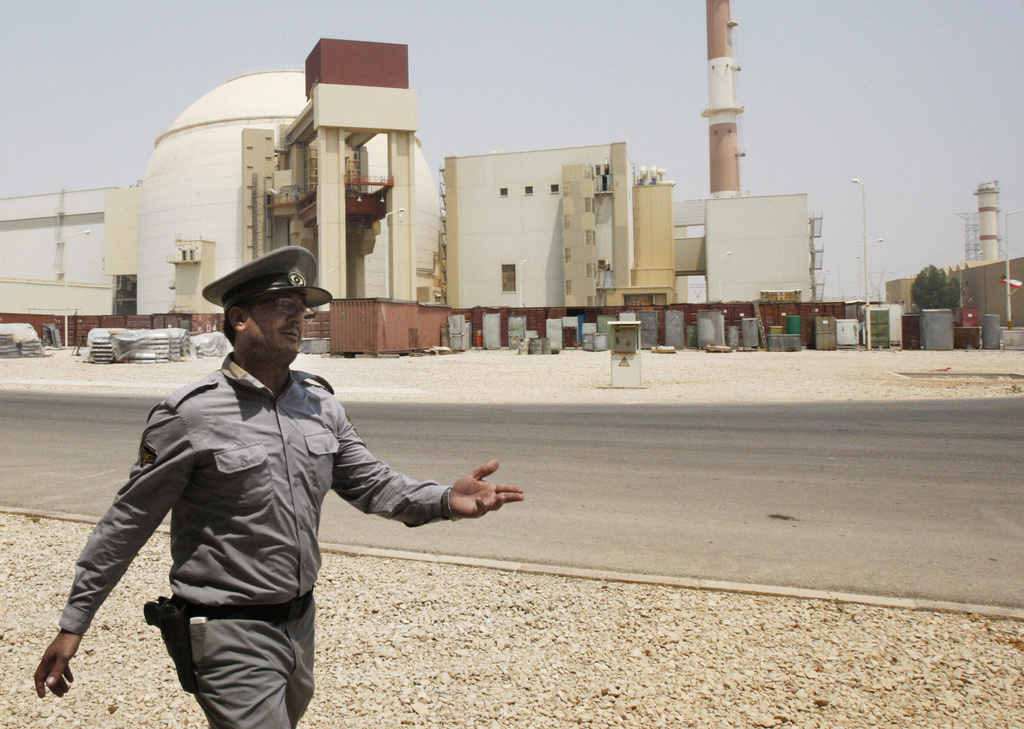France, Germany and the United Kingdom started a process Thursday to reimpose United Nations sanctions on Iran over its nuclear program, further isolating Tehran after its 12-day war with Israel saw its atomic sites repeatedly bombed.
The mechanism, termed “snapback” by the diplomats who negotiated it into Iran’s 2015 nuclear deal with world powers, was designed to be veto-proof at the U.N. and is likely to go into effect.
It would again freeze Iranian assets abroad, halt arms deals with Tehran and penalize any development of its ballistic missile program, among other measures, further squeezing the country’s reeling economy.
The European move starts a 30-day clock for the sanctions to return, a period that likely will see intensified diplomacy from Iran, whose refusal to cooperate with the International Atomic Energy Agency’s inspectors started the crisis. The U.N. General Assembly in September will also likely see Iran as a top focus.
France and Germany’s foreign ministers suggested they viewed “snapback” as a way to spur negotiations with Tehran.
“This measure does not signal the end of diplomacy: we are determined to make the most of the 30-day period that is now opening to engage in dialogue with Iran,” French Foreign Minister Jean-Noël Barrot wrote on the social platform X.
Iran’s Foreign Minister Abbas Araghchi said in a statement that he decried the move as “unjustified, illegal, and lacking any legal basis” in a call with his European counterparts.
“The Islamic Republic of Iran will respond appropriately to this unlawful and unwarranted measure,” he said, without elaborating.
Europeans warned Iran ‘snapback’ could come
The three European nations warned Aug. 8 that Iran could trigger snapback when it halted inspections by the International Atomic Energy Agency after Israeli strikes at the start of the two countries’ 12-day war in June. Israeli attacks then killed Tehran’s top military leaders and saw Supreme Leader Ayatollah Ali Khamenei go into hiding.
Iran threatened Thursday before the announcement to abandon all cooperation with the IAEA if “snapback” moves forward.
“We have told them if this happens, the pathway we have opened for working with the IAEA will be completely affected and the process will likely be stopped,” Kazem Gharibabadi, a deputy foreign minister, told state television. “If they opt for snapback, it makes no sense for Iran to continue working with them.”
Using the “snapback” mechanism likely will raise tensions further between Iran and the West in a region still burning over the Israel-Hamas war in the Gaza Strip.
“The U.S. and its European partners see invoking the ‘snapback’ as a means of keeping Iran strategically weak and unable to reconstitute the nuclear program damaged by the U.S. and Israeli strikes,” the New York-based Soufan Center think tank said Thursday.
“Iranian leaders perceive a sanctions snapback as a Western effort to weaken Iran’s economy indefinitely and perhaps stimulate sufficient popular unrest to unseat Iran’s regime,” it added.
Iran appears resigned
Iran initially downplayed the threat of renewed sanctions and engaged in little visible diplomacy for weeks after Europe’s warning, but has engaged in a brief diplomatic push in recent days, highlighting the chaos gripping its theocracy.
In Tehran on Thursday, Iran’s rial currency traded at over 1 million to $1. At the time of the 2015 accord, it traded at 32,000 to $1, showing the currency’s precipitous collapse in the time since. The rial hit its lowest point ever in April at 1,043,000 rials to $1.
Outside a currency shop in Tehran, resident Arman Vasheghani Farahani told The Associated Press that “many of us feel a deep sense of uncertainty and desperation” over the currency collapse sparked by the nuclear tensions.
“Should we keep trying, or is it time to give up? And how long will this situation last?” he asked. “No official seems willing to take responsibility for what’s happening.”
At issue is Iran’s nuclear enrichment
Before the war in June, Iran was enriching uranium up to 60% purity — a short, technical step away from weapons-grade levels of 90%. It also built a stockpile containing enough highly enriched uranium to build multiple atomic bombs, should it choose to do so.
Iran long has insisted its program is peaceful, though Western nations and the IAEA assess Tehran had an active nuclear weapons program up until 2003.
It remains unclear just how much the Israel and U.S. strikes on nuclear sites during the war disrupted Iran’s program.
Under the 2015 deal, Iran agreed to allow the IAEA even greater access to its nuclear program than those the agency has in other member nations. That included permanently installing cameras and sensors at nuclear sites.
But IAEA inspectors, who faced increasing restrictions on their activities since the U.S. unilaterally withdrew from Iran’s nuclear deal in 2018, have yet to access those sites. Meanwhile, Iran has said it moved uranium and other equipment out prior to the strikes — possibly to new, undeclared sites that raise the risk that monitors could lose track of the program’s status.
On Wednesday, IAEA inspectors were on hand to watch a fuel replacement at Iran’s Bushehr nuclear reactor, which is run with Russian technical assistance.
European nations faced deadline
The deal’s snapback mechanism will expire Oct. 18, and the three European nations likely felt now is the time to act. Under the mechanism, any party to the deal can find Iran in noncompliance, triggering renewed sanctions.
After it expires, any sanctions effort would face a veto from U.N. Security Council members China and Russia — nations that have provided some support to Iran in the past but stayed out of the June war. China as well has remained a major buyer of Iranian crude oil, something that could be affected in “snapback” happens.
Russia in recent days has floated a proposal to extend the life of the U.N. resolution granting the “snapback” power. Russia also is due to take the presidency of the U.N. Security Council in October, likely putting additional pressure on the Europeans to act.
(AP)











